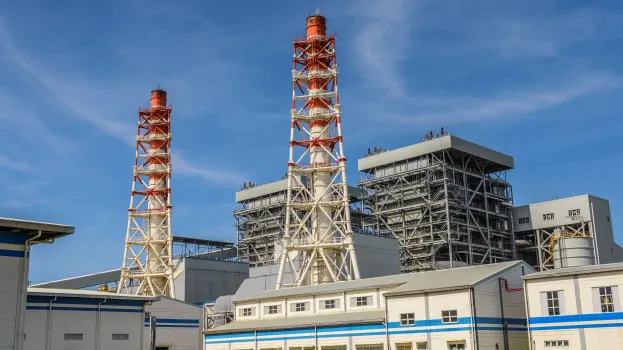
ACEN's successful ETM deal marks a new era for coal divestment
The ETM transaction will enable the early retirement of the South Luzon Thermal Energy Corp. Power Plant.
For years, the Philippine-based energy group ACEN has been working towards divesting the South Luzon Thermal Energy Corp. (SLTEC) power plant. But traditional banks and investors are moving away from financing coal. With the help of the Asian Development Bank (ADB)’s Energy Transition Mechanism (ETM), ACEN was able to divest the plant in November 2022. ACEN and ADB’s ETM deal is considered to be historical because it is the first market-based deal to provide funding for the retirement of coal plants.
According to ADB, the ETM is a scalable and collaborative concept that leverages low-cost and long-term funding to retire coal power assets on an earlier schedule than if they remained with their current owners.
“ETM is a very novel concept, it still takes an extra step to convince the board of directors that such investment in an ETM structure deserves a carve-out or an exception to their policy against lending coal, since technically speaking, this is still lending to a coal plant,” Ayala-led ACEN President and CEO Eric Francia told Asian Power.
The full divestment of the SLTEC power plant saw some P13.7b debt financing provided by the Bank of the Philippine Islands (BPI) and Rizal Commercial Banking Corporation (RCBC), and another P3.7b in equity investments from the Philippines’ Government Service Insurance System (GSIS), The Insular Life Assurance Company, Ltd., and ETM Philippines Holdings, Inc. This will enable the early retirement of the 246-megawatt (MW) coal plant, based in Batangas province.

Here’s the full transcript of Asian Power’s interview with Francia:
Tell us about ACEN’s recent Energy Transition Mechanism deal.
The ETM is an innovative approach for us to divest the coal plant in a responsible manner, initiated by ADB in this part of the world that takes in low-cost long-term, purpose-driven investors to acquire coal plants with the goal of retiring earlier than their technical life.
ACEN has, together with our parent company Ayala Corp., announced our commitment to net zero greenhouse gas emissions by 2050. This entailed the divestment or spinning out of our thermal assets, both coal and diesel, to achieve at least zero Scope 1 emissions by 2025–that is coming from our own generation.
We got a positive reaction from our investors because it is where the world is headed in terms of the energy transition. By and large, we got strong support for that initiative; however, there were some ESG investors who raised concerns. We may be just passing the emission problem to somebody else through a plain vanilla divestment and worse, if we just divested to an unlisted company or a private company that is typically less transparent in reporting, and less incentivised to do the right thing in managing those emissions as they have no public stakeholders or investors that will keep them honest. They may extend the life of the plant to maximise their investment.
When we were grappling with this issue and trying to come up with solutions, we found out about this Energy Transition Mechanism being pushed by ADB and a host of other big financial major financial institutions. It was really an “Aha!” moment for us in terms of being the potential solution to the issue at hand. We had a series of conversations with various partner institutions, including ADB, to explore this opportunity.
What are other key challenges you encountered for this transaction and how did the company address them?
One of the key challenges of this transaction was for the stakeholders to accept the very notion of the ETM, where you put money in a coal plant with the intention of retiring the plant earlier than its technical operating life. We have to remember that many institutions already have a policy against lending or investing in coal plants. A lot of banks and investment funds, and investors are already shying away from coal assets.
If you have such a policy, then you have to go back to the board for some exemption or carve-out and that's not easy. We started with the two banks, BPI, and RCBC. Interestingly enough, these two banks are amongst the first banks in the Philippines to establish a policy about lending to coal. They were the first two banks that limited coal lending. Fortunately, when they took the initiative of going back to their boards and getting this carve-out, that for us was a breakthrough because it is quite important to get these like-minded individuals to support the concept of ETM.
The insurance companies also saw the value of the ETM concept, seeing it as an additive to the costs of sustainability and energy transition. They also saw that the inherent structure of the deal meant that they would have stable long-term cash flows. It is like hitting two birds with one stone, both from a sustainability impact perspective, and the long-term cash flow perspective. Those were the critical enablers to the top challenge of embracing ETM as a new concept, notwithstanding the policies or stance against call investment.
What will happen with South Luzon Thermal Energy Corporation now that the deal has been completed?
Coal plants typically operate for around 50 years. What we committed in the SLTEC ETM is that ACEN will retire the SLTEC after its 25th anniversary, which happens to be in 2040. Under normal circumstances, the plant would still be fit to run for another 15 to 25 years. That is if you make the proper maintenance and investments. We committed that it will be retired by 2040 or earlier and we will transition it to cleaner technology.
The new owner can do the transition themselves, but we also ensure that we have the ability to effect the retirement and the transition by having the option to buy back the plant when it is time to retire and transition. ACEN has the ability to control the plant in the future, if we had to, in order to effect the transition.
Between now and 2040, the plant is expected to operate and provide reliable, affordable power to the grid, especially during this time when supply is tight in the country. To ensure the viability of SLTEC, ACEN will be purchasing the entire output of the power plant until 2040. This establishes the steady cash flows that the investors are looking for. We are still the purchaser of the output of the program.
In addition, the new investors will be comfortable with their investments. We have an agreement between ACEN and SLTEC to make sure that we have operations and maintenance oversight whilst the 200 people who run and operate the power plant remain in SLTEC. As part of the transaction, we have an arm's length contract where ACEN will ensure the quality, safety, and reliability of the plant to give quality assurance to investors that their investments or in this particular case, the plant is running safely, reliably, and efficiently.
In the meantime, we have around 18 years to manage the transition of SLTEC and we are collaborating with the SLTEC organisation to ensure a just energy transition.
The deal retains ACEN's ability to assist the new owner in phasing out the coal plants and gives it the option to buy back the plant. What are initial plans of the company in converting the plant?
No definite decision yet, because it is still early given that our commitment is to retire the whole plant in 2040. We still have 18 years ahead of us. If you asked me if we had to do this today or in the next five years, the most likely answer is something that companies in Australia, for example, are already doing, which is to decommission the coal plants and replace them with big batteries. That is not to say that it is what we are going to do for sure because for now, a big battery is probably the most viable source of energy, but in 10 to 15 years time, there might be other, more compelling technologies other than big batteries. We'll have to see how technology progresses over the next decade.
The ETM resulted in a P17.4-b worth of proceeds. How do you plan on using this?
Around P10b of that was used to refinance the legacy loan of SLTEC. The P7.2b approximately was the amount that went to ACEN, which ACEN will redeploy to support our aggressive renewables expansion.
To give you an idea, with the P7.2b of equity, we could add project debt or corporate debt, we can put leverage into that that would give us more than P20b of capital if you include the debt component that could be supported by that 7.2b of equity and that could then go towards enabling some of our solar and wind projects in the Philippines.
In some Southeast Asian countries, there are moves to reverse their coal phase-out plants amidst the threats to energy security. How did the energy crisis affect ACEN particularly, its transition goals?
It emboldened us and motivated us more to be aggressive in our renewables rollout. The reversal of policy or treatment of coal plants is more true in the likes of Europe, which has already shut down its coal plants but has not decommissioned yet. This really more of a short gap solution; but mid to long term, this energy crisis is a staunch reminder that energy security is critical. Therefore, countries will look to really harness their indigenous resources.
Despite the short-term setback of reopening coal plants, and coal mines. I think the silver lining here is that renewables expansion has to be accelerated because it is cost competitive now, especially with the elevated fossil fuel price. It provides price stability, given that once you build renewables, it's a fixed price, it's stable for the long term and not subject to all this price volatility.
The stance that we are taking is that this energy crisis is a catalyst for accelerating renewables expansion. The one missing link in all this is energy storage, which has also become more expensive because of increases in commodity prices and supply chain issues. Bottlenecks resulted in a higher cost of battery storage, but the global consensus is that this is a temporary setback and that energy storage, particularly battery storage will resume its trend in price decline and efficiency gains. It should be cost-competitive and scalable over the next few years, perhaps in the mid to long term.
What's next for ACEN? What can we expect in the next year?
Well, we are currently building around 1,000MW worth of renewables in the Philippines alone. We're also building close to 1,000MW worth of renewables outside of the Philippines. A lot of this, close to 2,000MW new capacity, will be operational in the next 12 to 18 months.
We will be adding significant capacity to markets where we participate, and in this particular case, the three biggest beneficiaries are the Philippines, and Australia, where we are building 500MW. In fact, we expect that number to be close to 1000MW in Australia in the next few months. Then we're also building more than 400MW in India.
We're hoping that around 70% of the 1,000MW planned for the Philippines will be operational in 2024. On top of that, we expect to continue new investments in the Philippines and around the region. Expect us to continually start the construction of renewable energy plants in the Asia Pacific. We just announced our ACEN 2030 vision, which is our goal to reach 20 gigawatts of renewables by 2030. With that, I think we will always be doing new projects. In addition to the projects that we're already constructing and operating soon, it will just be continuous growth and continuous expansion.
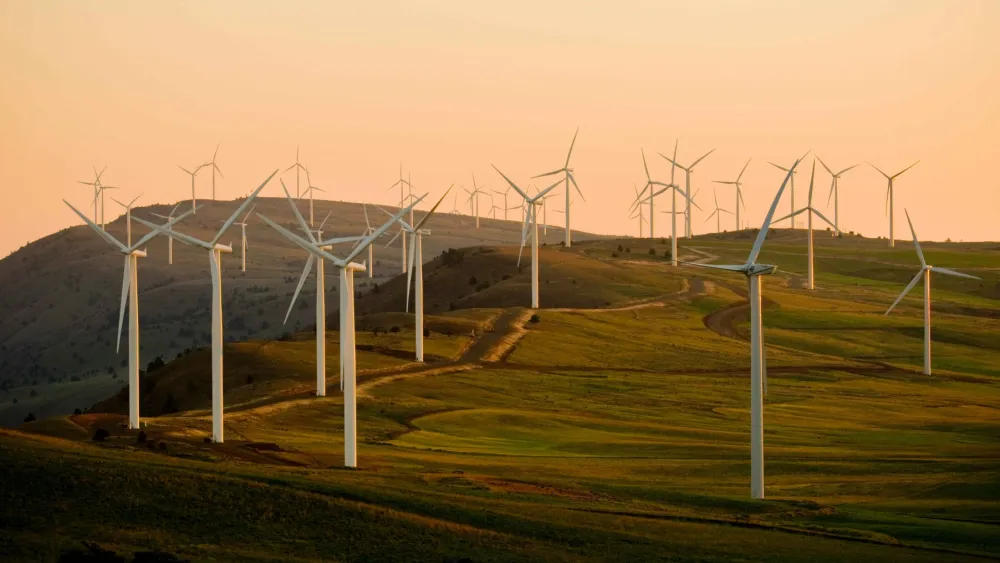
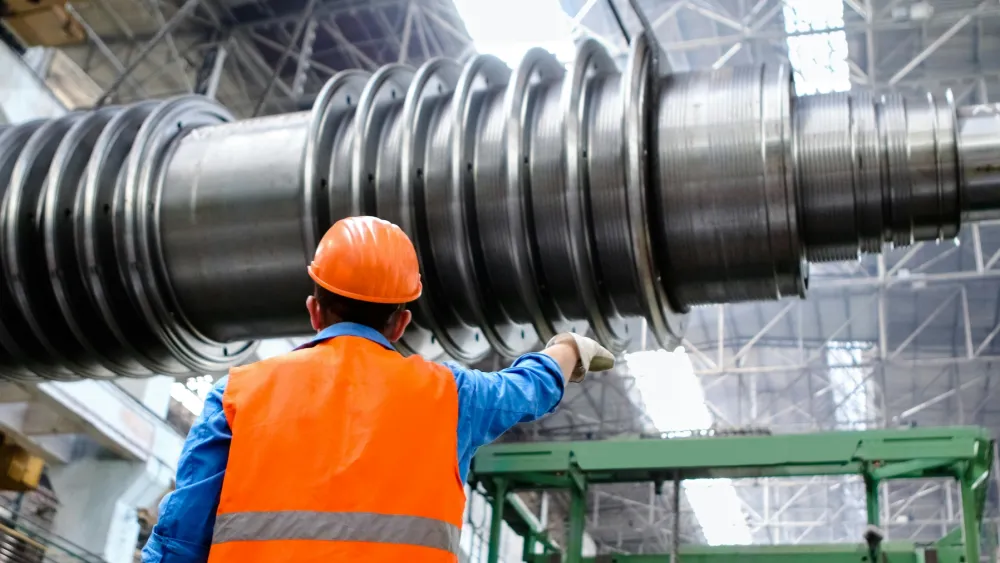

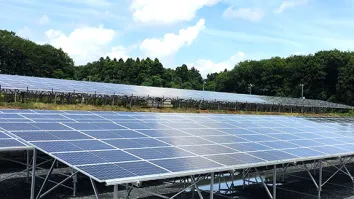
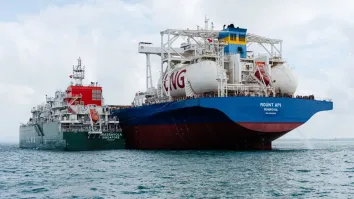














 Advertise
Advertise







